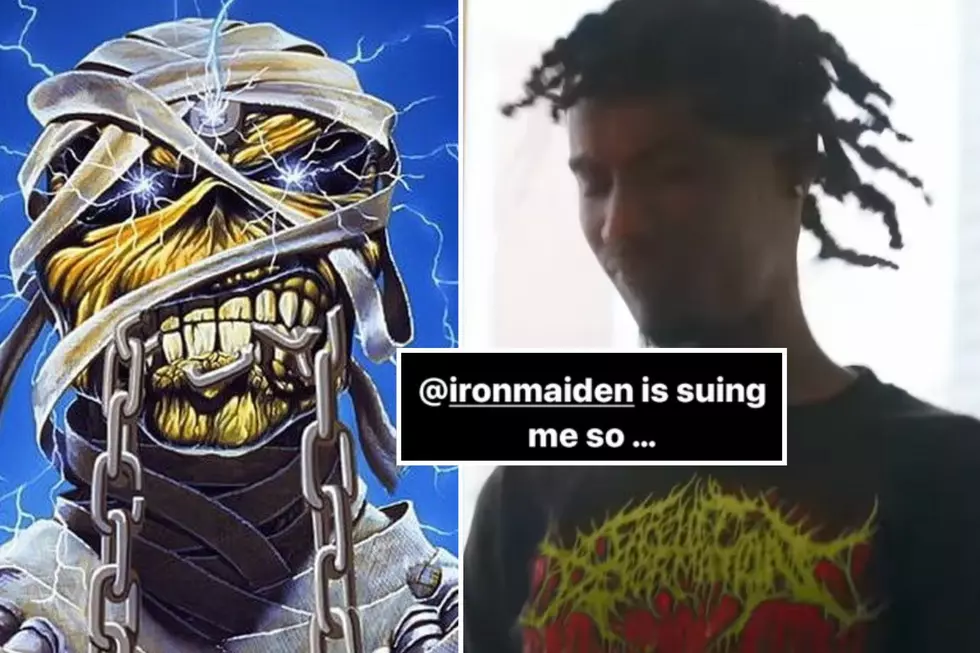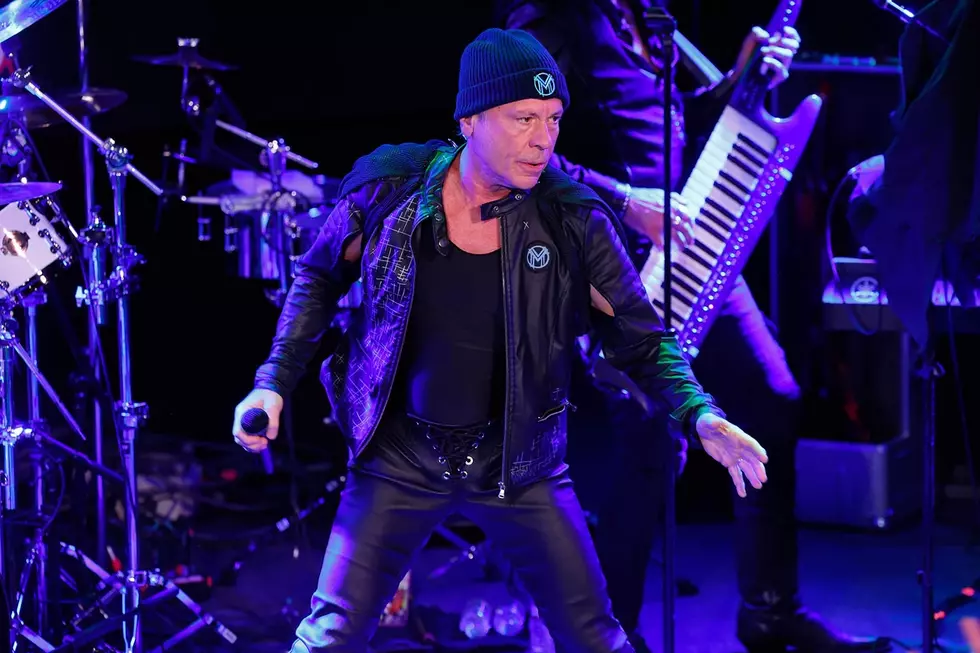
When Paul Di’Anno Played His Last Show With Iron Maiden
Iron Maiden played their final concert with singer Paul Di'Anno on Sept. 10, 1981, in Copenhagen, though few were aware of the already-decided split at the time.
News of Di'Anno's dismissal was soon followed by the announcement of his immediate replacement in former Samson vocalist Bruce Dickinson. This split with a figure who had graced Iron Maiden's first two albums, numerous singles and countless shows over the previous three years came as a shock to many fans – and even well-informed media outside the group's tight-knit inner circle.
For those inside it, however, the drastic change had been a long time coming. All Iron Maiden founder, bassist and chief songwriter Steve Harris had to do was muster the courage to pull the trigger on removing his band's very popular and talented frontman. It is, after all, a gamble that very few rock bands have undertaken and survived.
As far back as February 1981, when Iron Maiden were riding the largely positive reaction to their impressive sophomore album, Killers, Harris' patience with Di'Anno's increasingly reckless partaking of the rock-star lifestyle was beginning to wear thin. In fact, the bassist would later say he'd harbored doubts about the strength of Di'Anno's commitment to their cause almost from the start of their musical relationship, back in August 1978.
As Iron Maiden rushed out for a grueling world tour, those misgivings were unfortunately confirmed by Di'Anno's early unreliabity. On the band's first swing across Europe, five German dates had to be canceled so Di'Anno could "rest his voice." That understandably irked promoters, disappointed fans and sapped Harris' last bit of faith in his lead singer.
For his part, Di'Anno would later blame his lack of commitment on a growing disenchantment with Iron Maiden's almost military professionalism, as dictated by Harris (openly nicknamed "Sergeant Major Harris") and band manager Rod Smallwood (a.k.a. "Smallwallet," but for entirely different reasons). Their exacting standards, Di'Anno felt, were draining all the fun out of being in a rock and roll band.
After those initial European dates, Iron Maiden were subsequently booked for a string of shows in Japan, in America (a first for the group) and in Europe again. By the time the initial lineup of Di'Anno, Harris, guitarists Adrian Smith and Dave Murray, and drummer Clive Burr finally made it back home again, they were on the verge of becoming a singer-less quartet. Di'Anno was summoned to Rod Smallwood's office and told he was being let go.
The decision was, at this point, pretty much mutual. "It's true, I was relieved," Di'Anno told Mick Wall in Iron Maiden's authorized biography, Run to the Hills. "I was sad, too [but] I didn't get into rock and roll to keep schedules and make sure I get my eight hours' beauty sleep every night."
Sleep would be something Di'Anno would not be hurting for over the ensuing years, as his post-Iron Maiden career gradually lost steam even while his former bandmates hit their stride with Dickinson.
Meet the New Boss: Rock's Replacement Singers
Iron Maiden's Rarest Songs
More From Ultimate Classic Rock









